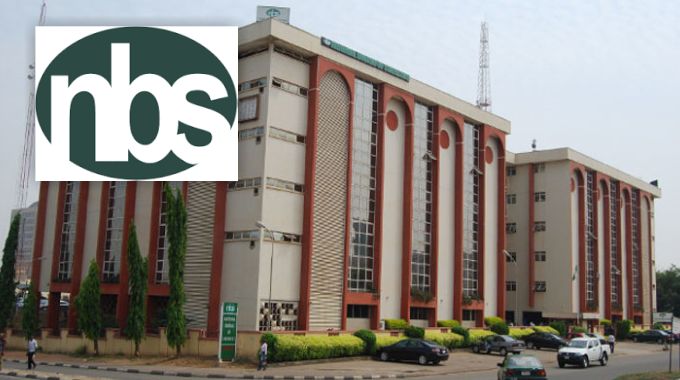On Monday, the National Bureau of Statistics reported that in September 2023, Nigeria’s inflation rate rose to 26.72 per cent compared to the August 2023 headline inflation rate of 25.80 per cent. Compared to the records of 12 months ago, September 2022, which was 20.77 per cent, the reported headline inflation rate is 5.94 per cent points higher. The more pressing issue is that food inflation is at 30.64 per cent compared to last year. In September 2022, food prices rose by 23.34 per cent, making a difference of 7.3 percentage points.
For ordinary people whose income goes from hand to mouth, the rising inflation means that the money spent on food will not buy much because items are becoming pricier daily. Needless to say, the removal of fuel subsidy is a key driver of this headline inflation.
The cost of daily essentials like food and transportation is already making life almost unbearable. And there seems to be no end to this hardship anytime soon, and its impact on the poor is disproportionate to the rich. Truly, this cost-of-living crisis is biting hard.
But the situation is not unique to Nigeria alone. One of the many problems is that the policies designed to address the problem are seen from a different perspective, which tends to harm the economy more. Advanced and rich countries like the UK and America face similar challenges as energy prices soared.
- Senate withdraws motion calling for reopening of Nigeria-Niger borders
- Kaduna offers scholarships to 50 students to study ICT at Indian varsity
For example, the annual inflation rate in the UK reached 10.1 per cent in September 2022. It reached 11.1 per cent, a 41-year high, in October 2022, before subsequently easing.
Recent data shows it fell to 6.5 per cent in September 2023 from 6.7 per cent in August 2023. But, unlike Nigeria, they are tackling the problem systematically, even though the difficulty is not as bad as Nigeria’s.
In the face of the cost-of-living crisis, the UK government responded with several packages of support for households. In 2022/23, household income support totalled £59.8bn, and it is forecast to spend a further £21.5bn for 2023/24 as the inflation rate subsides. These include paying for energy bills, extra payments for those receiving benefits and pensions, cutting fuel duty, raising the national living wage, and helping people into jobs.
The UK Prime Minister even promised the British that his government would halve inflation by the end of 2023. Although this is not within his purview, it is a gesture to show compassion.
On paper, Nigeria is trying to imitate a similar project by borrowing more money from the World Bank to add to what they have already borrowed. Another $400 million from the World Bank is expected to be delivered to fund 15 million households, although it is yet to be rubberstamped by the National Assembly. It will be added to the already approved $800 million to fund 12 million ‘poor’ households, which has been discarded.
This brings a total borrowing of $ 1.2 billion by the federal government from the World Bank for the cash transfer to 15 million regular households and 12 million poor households. This is coupled with so many promises made on Independence Day, which makes one lose count of the government’s promises and policy direction. I do not want to sound cynical, but once we start presenting facts, the whole discussion could be marking down this government’s performance. So, let’s keep it to this paragraph only.
At the moment, it seems like the government is struggling to implement the methods it designed to channel the funds to those who are truly affected. They also have a pressing problem of fighting a sticky inflation, 26 per cent, which will take years to bring down. A strategic approach will mean controlling inflation at its source—tightening monetary policy, pausing printing money, collaborating with the CBN to manage interest rates, and intervening in foreign exchange markets. While these macroeconomic tools might not directly target the poor, the large populace benefits by controlling the rising inflation.
However, Cardoso’s recent announcement failed to give a definite inflation target figure as done by conventional independent central banks. This indicates that the intent to curb inflation is not on the table as of yet. So, the only hope is for fiscal targeted interventions to mitigate the hardship by replicating how it is done in Western economies.
Thinking out loud, the government needs to act quicker to offset the medium-term impact of fuel subsidy removal, which feeds into headline inflation through rising costs. I would recommend local refineries start producing as soon as possible. If that cannot happen, the government should look at how to hire-purchase some refineries abroad. Price controls on staple foods and other necessities must be considered, although this requires careful management to prevent shortages.
It is commendable that they addressed the issue of wage stagnation in the face of rising costs to ensure incomes keep pace with rising prices. However, it needs to go beyond the proposed three months. The plan to incentivise businesses, including supplying CNG vehicles into the transportation system, is also notable.
Regardless of politics and regional affiliation, the government must keep the objective of shielding the most vulnerable population and businesses from the immediate brunt of this inflation by ensuring their heads are kept above water.

 Join Daily Trust WhatsApp Community For Quick Access To News and Happenings Around You.
Join Daily Trust WhatsApp Community For Quick Access To News and Happenings Around You.

